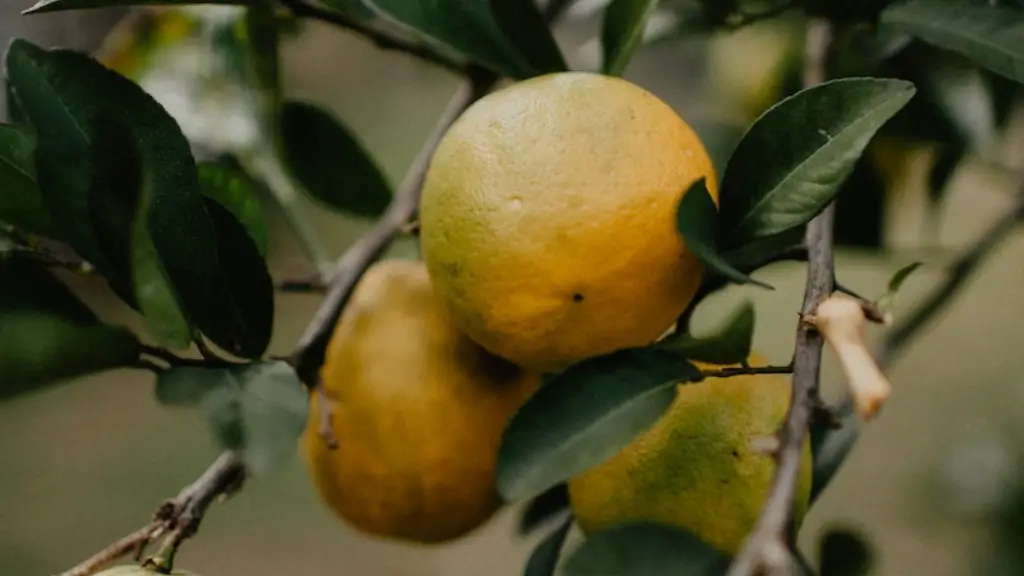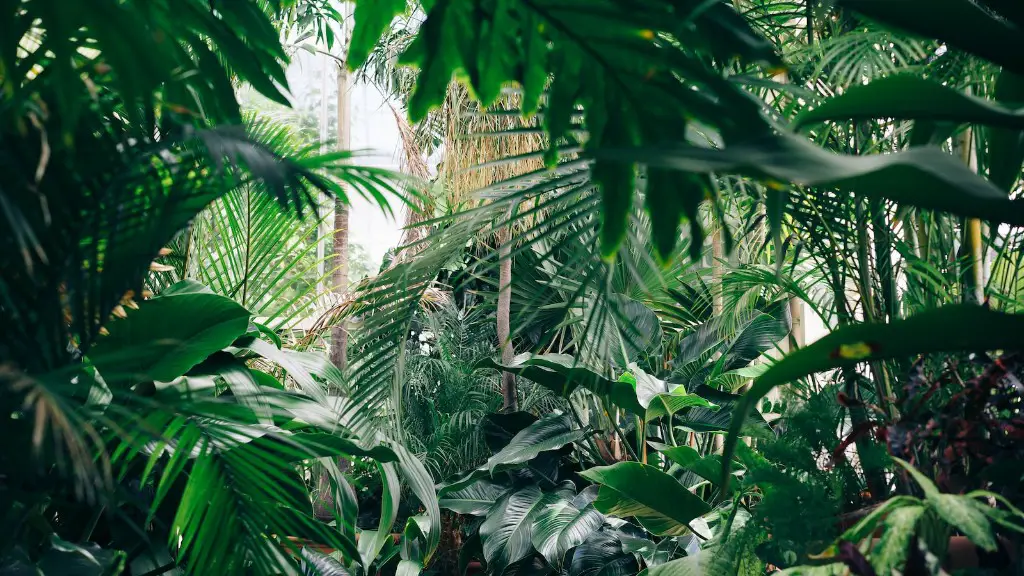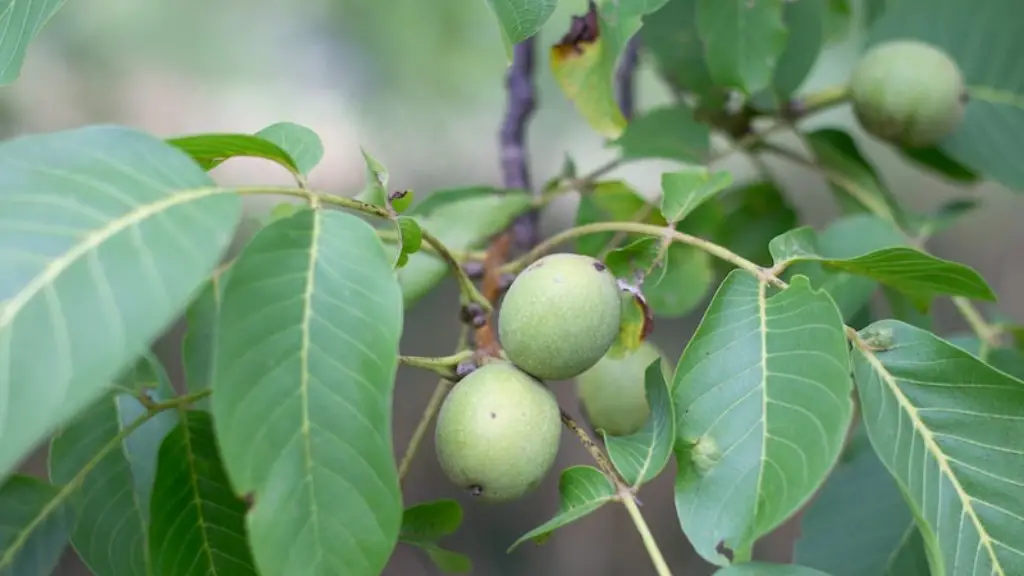Lemon trees are a hardy plant that thrive in a variety of climates and conditions. But why won’t your lemon tree grow? It’s possible that your lemon tree isn’t receiving the proper care it needs to survive and thrive. Read on to learn the common causes of stunted growth for lemon trees.
For starters, most citrus trees require at least eight hours of direct sunlight each day. If your lemon tree is not receiving enough sunlight, it will not be able to carry out photosynthesis, which is necessary for the healthy production of fruit and foliage. Moving your lemon tree to a sunnier spot may help it start to grow more quickly.
Next, it’s important to water your lemon tree consistently. Without the proper amount of water, your lemon tree’s roots won’t have enough resources to sustain the production of new growth. Keeping your lemon tree’s soil moist, but not saturated, is the ideal amount of water for good growth.
Professional soil tests also indicate that citrus trees benefit from a soil that is slightly acidic, with a pH between six and seven. If your soil is too alkaline, or too acidic, fertilization can help to get the pH balance back to what’s required for optimal growth. Fertilize your lemon tree once per month with a balanced fertilizer to ensure it’s receiving the proper nutrients.
It’s also important to prune your lemon tree regularly. Pruning helps to encourage new growth and can help to reduce the risk of disease or pests. Cut away any dead, diseased, or broken branches, and thin out overgrown branches for better air circulation. This will give your tree the best chance for healthy growth.
Finally, if you’re extremely concerned about your lemon tree’s growth, consider having a qualified arborist come and take a look. An experienced arborist will be able to diagnose the problem with your tree and make recommendations for the best course of action.
Planting the Right Type of Lemon Tree
Planting the wrong type of lemon tree can be one of the key reasons why lemon trees won’t grow as expected. If you’re in a particularly cool or wet climate, you should opt for a hardier variety of lemon such as the Eureka or Lisbon. On the other hand, if you live in a warmer climate, a Meyer lemon tree would be the best choice. It’s important to read up on climate requirements for the particular lemon tree you are looking at, to ensure it is going to be suitable for your area.
Also, paying attention to tree spacing when planting is essential. Most citrus trees need room to spread their branches and gain access to adequate sunlight. Planting your lemon tree too close to other trees, or planted in a constricted area, can cause stunted growth and few fruits.
It’s wise to consider the aspect of your citrus tree planting site as well. Planting against a wall or near a concrete drive that can reflect heat away from the tree is not a good idea. Citrus trees will prefer to grow in semi – shady areas, rather than in direct sunlight or direct shade.
The temperature range of various citrus trees can also vary substantially. Some citrus trees will be able to tolerate frost, while others won’t. If a particular cold-tolerant lemon tree is planted in an area where frost is common, it could struggle and eventually die.
Environmental Factors
There are certain environmental factors in certain regions that can lead to a useless lemon tree. Extreme temperatures, either due to heat waves or cold snap, can cause sudden deaths of a lemon tree. On the other hand, a paler temperature range can also hinder the growth of the tree. Sun, wind, and cold are also very important factors to consider when planting a lemon tree.
The amount of frost and summer heat also play a big part in how a tree behaves. Frost can be devastating to a young tree, while a scorching summer can cause dehydration. Generally speaking, it is best to avoid planting in areas with a higher frost risk or significantly higher summer temperatures than recommended for the particular variety of lemon tree you are planting.
The risk of fungal diseases and pests is also considerable when attempting to grow lemon trees in certain locations. That is why it is important to inspect your soil for potential fungal diseases, parasites, and pests that could affect the growth of your lemon tree. In some cases, chemical pesticides will be required to prevent further damage.
Nutrient Deficiencies
Another common reason why lemon trees don’t grow is due to nutrient deficiencies in the soil where the tree was planted. It is important to check the soil for proper nutrient levels before planting a new lemon tree. This can be done with a soil test, which will help you determine the right balance of nutrients to give your tree.
The most essential nutrient for lemon trees is nitrogen, but phosphorus and potassium are also important. Depending on the soil, additional micronutrients may be necessary. Look for signs of yellow leaves, which can indicate a lack of available nutrients. If your lemon tree is showing signs of nitrogen or other nutrient deficiencies, fertilize with the appropriate mixture to help it recover.
Compacting of Soil
Compacted soil can have a devastating effect on the growth of citrus trees. Roots need access to oxygen and water, but if the soil is too hard, roots can struggle and the growth of the tree will be hindered. Therefore, it’s important to inspect the planting site for any signs of compaction, and if necessary, break up the soil lightly before planting.
If the soil has been compacted for some time, it may be beneficial to incorporate organic matter into the soil as well. Organic matter, such as compost or manure, introduces beneficial microorganisms into the soil and helps to loosen it up, allowing roots to gain access to oxygen better.
Soil pH
Finally, soil pH is an important factor to consider when trying to understand why your lemon tree won’t grow. Lemon trees prefer a soil pH of 6 – 7, which is slightly acidic. If the soil pH is off, you can adjust it with a amendment such as sulphur. Sulphur helps to lower the pH of the soil and can help to promote better root growth and soil health.
Overall, when attempting to understand why your lemon tree won’t grow, there are a number of factors to consider. From the wrong type of lemon tree to environmental factors and nutrient deficiencies, there are numerous reasons a lemon tree will struggle. Following proper care procedures and keeping an eye out for signs of disease or pests can help ensure your lemon tree lives a long and productive life.


